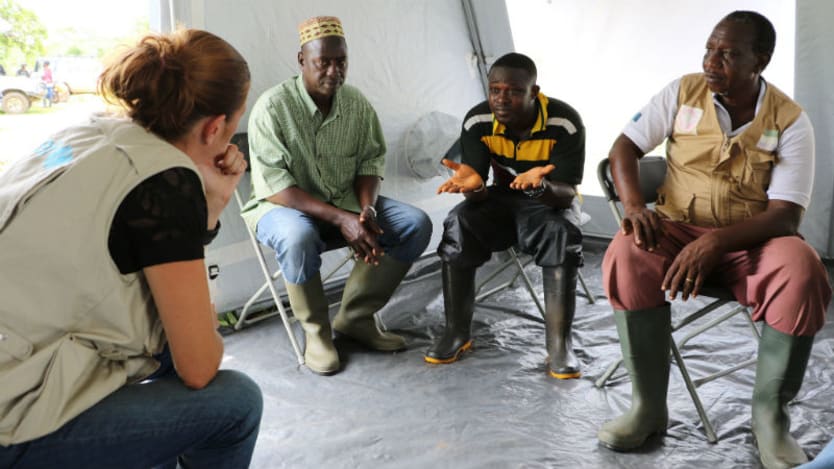
Panic and fear are common during disease outbreaks. When we see on the news something that can kill us through touch or air, we begin to fear our neighbors, our friends, and our communities. This fear can lead to irrational, hasty decisions. In a scramble to curb the disease, governments — made up of people just as afraid of outbreak — tend to resort to protectionism that rarely considers human rights as a priority.
To avoid another painful lesson for the global community, human rights must be at the forefront of all preparedness planning. This is to ensure that during an outbreak, everyone has access to treatment, care, and the provisions they need to survive. Ignoring human rights has long-term consequences not just for the victims, but for countries as a whole, including the loss of the public’s trust in the government.
Human rights themselves are interconnected, indivisible, and interdependent and therefore require a multifaceted approach. We need to look for examples of good practice beyond recent epidemic responses and apply the core principles that have, for instance, made human rights-based health policy a reality. These same principles of communication, transparency, and accountability also apply in emergency responses to help ensure that no one is left behind.
Addressing communication needs
What to know about WHO's newly launched courses on outbreaks, emergencies
The courses are free, and could be helpful not just to frontline responders, but also public health professionals, policymakers and donors.
There are many lessons to be learned from the Ebola response, particularly in the area of addressing communication challenges. Community health workers filling in for the non-existing communications infrastructure suffered violent attacks from fearful communities.
Before an outbreak happens, governments must plan for effective ways — including working with the private sector — to reach community members with both education on prevention and their rights. This requires contextual understanding to ensure messaging reaches the most marginalized and at-risk populations. Relationships with public opinion leaders and information brokers such as religious leaders, traditional healers, and community elders should be established before an outbreak so that they can be quickly integrated into communication campaigns during outbreaks and so that misinformation and further stigmatization of already vulnerable populations is avoided.
Strengthening transparency
When an outbreak happens, governments must make difficult decisions in curtailing the rights of individuals to protect the public health of all. This is not always done transparently. For example, quarantines have been implemented broadly, unfairly upheld, and inadequately monitored. Decisions should be based on clear national and locally relevant plans. These plans must be explicit about human rights. Governments, in collaboration with the World Health Organization, civil society organizations, and community leaders, should establish the minimum provisions and standards that must be in place to ensure respect for human rights. Standard policies will improve transparency, allowing for effective monitoring by civil society groups during an outbreak.
Listening to communities we serve
Civilians must be heard so they can be part of the response. We can apply tested approaches in engaging community members in health education, prevention outreach, service delivery, social services, and monitoring government response to outbreaks. Civilians must be able to have access to mechanisms that hold governments and international NGOs, as well as the military and police, accountable. Such systems will also allow for human rights to be better respected by those in power, and ensure effective programming for all.
Plan now!
The focus of those managing disease outbreaks should be on saving as many lives as possible and preventing further spread of disease without sacrificing the dignity of the individual. Human rights-based approaches in response planning will help in this endeavor, bringing in multiple stakeholders to think through ways of ensuring transparency, communication, and promotion of accountability and engagement during and in the aftermath of disease outbreaks.
Read more Devex coverage on outbreaks and emergency response.









